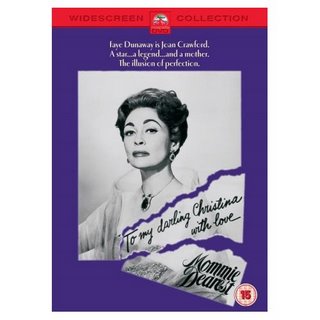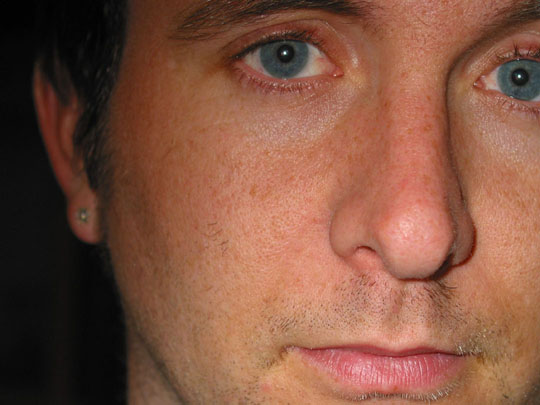SUMMER CAMP
For the general population “camp” is a place where you toast marshmallows and douse yourself with insect repellent. But for many homos and with-it heteros, the word also conjures wonderfully tacky spectacles and deliciously overripe melodramas.
The late novelist and cultural critic Susan Sontag mused about this phenomenon in her classic 1964 essay “Notes on Camp.” She writes, “Camp is art that proposes itself seriously, but cannot be taken altogether seriously because it is ‘too much.’”
Queers, she continues, “constitute the vanguard – and the most articulate audience – of camp.”
Recently four camp movie classics received the deluxe DVD treatment, complete with glamorous packaging, hours of extras and commentary tracks by dirt-dishers like John Waters.
I’m sure that only the butchiest of readers will disagree when I say that this kind of summer camp beats a week in the woods with mosquitoes and outdoor plumbing.
Valley of the Dolls
Upon its publication in 1966, Jacqueline Susann’s novel Valley of the Dolls sold over 30 million copies and joined the Bible as one of the ten bestselling books of all time. Not bad for a trash fest about three starlets undone by their addiction to booze and dolls (a nickname for uppers, downers and every other kind of pill you can name).
For the record, Susann hated director Mark Robson’s garish 1967 film adaptation. But that didn’t stop the film from being a huge hit, or from becoming a cult favorite among gay fans – even though we’re still sore that Robson fired Judy Garland and replaced her with Susan Hayward for the role of bitchy Broadway grand dame Helen Lawson.
Village Voice gossip columnist Michael Musto wrote, “If you’re not gay, you will turn gay from watching this movie.” It sounds extreme, but I’d wager that there’s not a latent drama queen on earth who wouldn’t go into full fag blossom after hearing the dejected Neely O’Hara (Patty Duke) scream, “The whole world loves me!”
This movie has it all: booze, drugs, insanity, horrible acting and one of Sharon Tate’s final screen appearances before her murder at the hands of the Manson gang.
The new double disc package is as stacked as, well, Sharon Tate. Encased in hot pink plastic, the set comes with original lobby cards that will look great alongside your favorite family photos. The DVD features a fawning commentary track by E! columnist Ted Casablanca and actress Barbara Parkin, several documentaries, screen tests and a trivia track.
Beyond the Valley of the Dolls
Valley of the Dolls is a classic example of a film that is campy because it fails so thoroughly in its mission to be a legitimate work of art. Beyond the Valley of the Dolls, the 1970 “sequel” that has practically nothing to do with the original, is campy because director Russ Meyer and screenwriter Roger Ebert deliberately injected spoofy fun into every scene. But you still have to be a connoisseur of camp to get the jokes.
Famous for his profitable nudie films with buxom stars, the late Meyer is highly revered in cult film circles for blurring the line between high art and low art. Equal parts Orson Welles and Andy Warhol, he used visionary camera angles and sophisticated editing to celebrate gratuitous sex and violence.
Ebert’s infinitely quotable script recalls the original Valley only in the sense that it follows three beautiful young women in search of stardom. They go to Hollywood and become rock ‘n’ roll royalty, rubbing elbows and crotches with nymphomaniacs, transsexuals and perfectly chiseled studs. This is a free loving, anything goes world where people say things like, “I’d like to strap you on sometime!”
Despite lots of straight sex and Playboy centerfold moments, Beyond the Valley of the Dolls easily qualifies as a queer film. There are several same-sex make out sessions, and some scorching babe-on-babe boudoir antics.
Set aside a whole lazy afternoon for all the extras. Ebert provides excellent commentary, but the commentary by various cast members on another audio track is scattered and dull. Bust out disc two for eye-popping photo galleries and excellent featurettes that show how the film reflects the chaos of the late 1960s.
What Ever Happened to Baby Jane?
Let the battle of the bitches begin!
Due to an ongoing rivalry that served them well in their roles as battling sisters, Bette Davis and Joan Crawford never worked together prior to What Ever Happened to Baby Jane? But by 1962 Davis desperately wanted to win her third Oscar, and Crawford thought Baby Jane was a surefire hit that would catapult her back to the box office glory of her early career.
Directed by Robert Aldrich, the low budget black-and-white production became a sleeper hit and earned five Academy Award nominations. Crawford, who was not nominated, reportedly campaigned against her costar to ensure that she went home empty-handed on Oscar night. No wonder that Davis arranged for Crawford to get the boot on their follow-up project, Hush… Hush, Sweet Charlotte.
Over-the-top even by horror movie standards, Baby Jane is the eerie, hilarious and occasionally sluggish tale of a reclusive former child star (Davis) who thrashes her wheelchair-bound sister (Crawford) with verbal abuse. On special occasions she serves her fancy dinner platters that conceal dead rats.
All the while, Davis wears girlish wigs and so much makeup that it looks like a five pound bag of pancake batter exploded in her face. Crawford’s expressions are so anguished that you can’t tell if she’s terrified, constipated, or both.
One exchange is especially popular with drag queens according to DVD commentators Charles Busch and John “Lypsinka” Epperson:
“You wouldn’t be able to do these awful things to me if I weren’t still in this chair,” says Crawford.
Davis grins, rolls her eyes and replies, “But you are, Blanche! You are in that chair!”
The best bit on the new two-disc set is a comprehensive Davis documentary hosted by Jodie Foster.
Mommie Dearest
If you’re not sufficiently frightened by Joan Crawford after watching Baby Jane, pop Mommie Dearest into your DVD player and you’ll be forever traumatized.
As the child abusing Crawford, Faye Dunaway delivers an astonishingly intense performance that might have won her an Oscar if the movie weren’t so patently ludicrous.
Who could ever forget her screaming, “No wire hangers!” or the image of her chopping down a tree like some drag queen Johnny Appleseed? And who can blame her for forcing her little brat daughter Christina to eat her cold raw rotting steak? Doesn’t anyone understand just how hard it is to be a single working mother?
Paramount originally released Mommie on DVD in 2001. The main reason to scoop up this new “Hollywood Royalty Edition” is the commentary by Pink Flamingos director John Waters. As funny and articulate as ever, he dishes out some good Faye Dunaway gossip, and argues that this much-maligned picture is actually “so good it’s perfect.”
He seems a bit out of touch with the movie’s ceaseless ridiculousness when he says that there are only a few scenes that are so campy that they cannot be taken seriously (such as the tree chopping scene). The whole movie is a campy train wreck as far as I’m concerned.
The disc also contains three featurettes about the film’s production, its cult following and the screen adaptation of Christina Crawford’s famous tell-all biography.
Now that you’ve overdosed on dolls and Joan Crawford, why not take these other campy flicks for a spin?
Showgirls
Except for a revolting rape scene near the end, Paul Verhoeven’s update of All About Eve is a marvelously lurid vision of Las Vegas garishness, glittery boobs and lesbo catfights. Invest in the “V.I.P Edition” for fabulous extras like lap dance lessons, commentary by gay Seattle actor David Schmader and a naughty parlor game called “Pin the Pasties on the Showgirl.”
The Bad Seed
Nothing says “camp” like an evil little girl with pigtails and spookily good manners. The DVD of this corny thriller includes a behind-the-scenes featurette with former child star Patty McCormack and commentary by McCormack and gay actor Charles Busch.
Catwoman
Who knows if Halle Berry’s litter box stink bomb will ever become a legitimate camp classic, but for the time being fetishistic fans can derive plenty of pleasure from her skin tight leather suits, whip-wielding dominatrix maneuvers, and strategic utterances of the words “meow” and “purrfect.”





1 Comments:
THIS WAS VERY GOOD
Post a Comment
<< Home